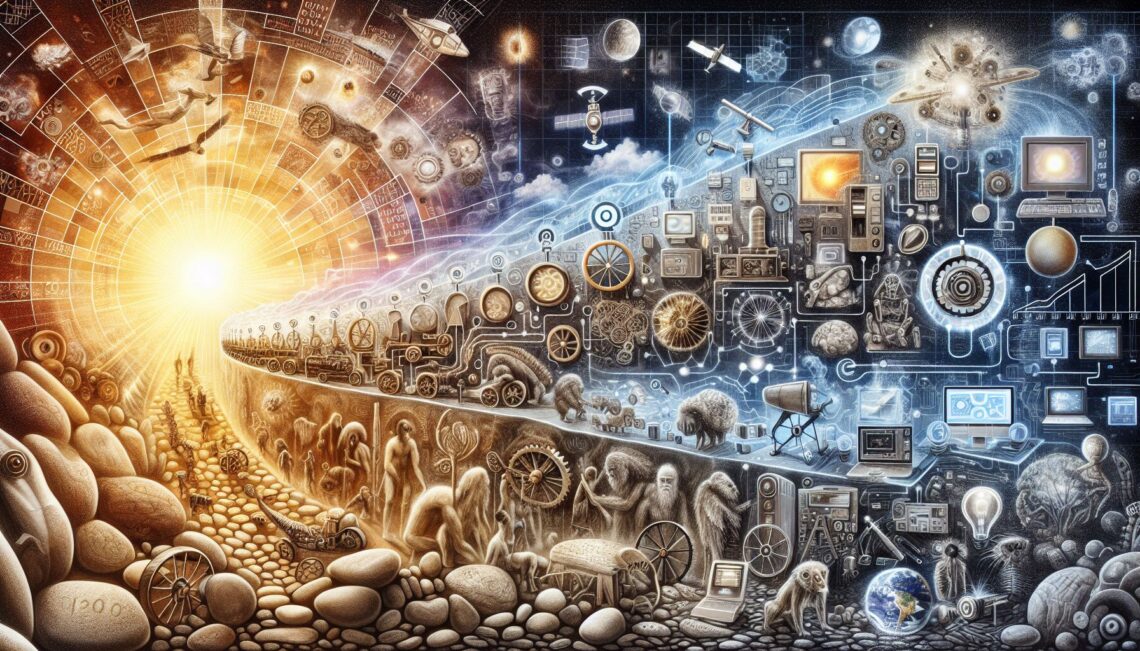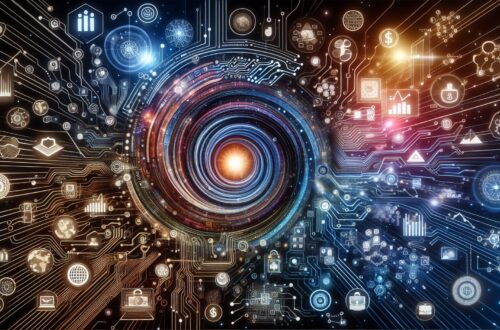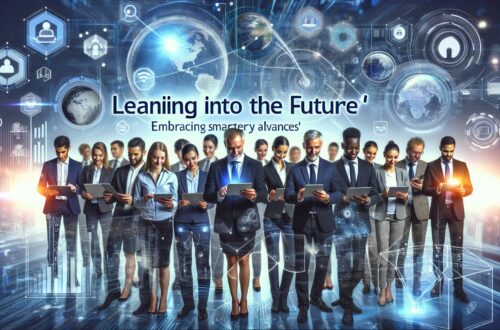The Dawning of a New Digital Age
Change has always been a key component of human growth, mapping the movement of civilizations from primitive lifestyles to sophisticated urban dwellings. Nowhere is change more apparent than in the realm of technology. From artificial intelligence (AI) to quantum computing, technology is not only redefining how we live but also altering long-standing business strategies, communication paradigms, and societal norms.
Emerging innovations like autonomous vehicles, digital currencies, and wearable technology provide snapshots into a future fueled by advanced tech capabilities. As high-speed communication networks bridge geographical divides, location becomes inconsequential resulting in a ‘global village’ where real-time interactions are the norm rather than the exception. We’re now in an era where physical and digital realities intertwine to create a hyper-connected world – a direct manifestation of recent technological breakthroughs.
 Navigating the Intersection of Business and Technology
Navigating the Intersection of Business and Technology
In the business world, technology has already disrupted conventional operating models. New paradigms, such as e-commerce and remote working, have rendered physical borders and timezones redundant. However, to successfully harness their potential, businesses need effective leadership that understands digital dynamics.
As organizations transform into digital entities, leaders need to empower their teams to adapt and innovate. Adopting a customer-centric approach is integral to this transition. Big data and advanced analytics provide unprecedented insights into customer behavior, preferences, and expectations, making personalization a new standard in business.
The digital age doesn’t just demand us to be customer-centric, but also environmentally conscious. Practices such as paperless communication and teleconferencing contribute to sustainability by reducing carbon footprint. Businesses are now utilizing green technologies like renewable energy and energy-efficient devices to further promote sustainable operations.
Even with these transformations, we’re merely scratching the surface of possibilities. Emerging technologies like AI, blockchain, and the Internet of Things (IoT) hold the potential to reshape businesses profoundly, promising improved efficiency, accuracy, and security.
The Future: Unbounded and Unpredictable
As we gaze into the future, the amalgamation of different technologies presents exciting possibilities. AI, combined with quantum computing, may result in unimaginably powerful systems capable of solving complex, time-consuming calculations within seconds. IoT integrated with blockchain can lead to decentralized, secure networks of devices, capable of independent decision-making.
While this technology-led future is alluring, it will also herald unexpected challenges. Cybersecurity risks, privacy concerns, and job displacements due to automation are some pressing issues that need to be thoughtfully addressed. As technology continues to evolve at lightning speed, constant upskilling will become necessary to keep up with ever-changing demands.
The prospects of technology are vast and largely untapped. Yet, it’s clear that our reliance on it will only increase as we move deeper into the digital age. Giants like Google, Apple, and Amazon continue to invest heavily in tech research, signifying that we are only on the cusp of this technological revolution.
In this rapidly advancing world, a keen understanding of technology’s transformational impacts and future possibilities requires continuous exploration and learning. A flexible mindset, coupled with an innovative spirit, can help us navigate this ever-evolving landscape, tapping into the immense potential of technology to create a more inclusive and sustainable future.






